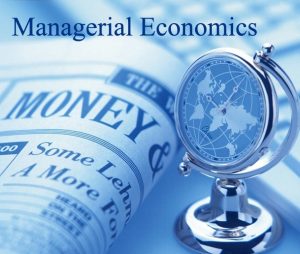What can you do with your Economics Degree?
March 22, 2025 | Chainadmin

Given India’s rapid integration into the global economy, the demand for officially qualified economists in business has been steadily increasing for several years. These “market economists” are in high demand across a variety of industries, including banking, financial services, and insurance, data analytics,public policy, consulting, and research. India is the world’s fifth largest and fastest expanding economy, surpassing France and the United Kingdom 2019. The current Indian administration is committed to making the country a $5 trillion economy by 2024 through a variety of reforms and rigorous measures aligned with RBI regulations. People with specialized economic knowledge will find a variety of job options as the economy grows.
A majority of students choose economics as one of their undergraduate degrees after graduating from high school. This course has a high cut-off for admittance to elite institutions, and the eligibility standards are extremely tough, requiring strong arithmetic skills. A decent Economics degree would equip you with the tools and cognitive processes necessary to function comfortably and productively in the majority of these fields. The typical income isn’t particularly high, but with the appropriate opportunity, you can make a lot of money.
The best thing about having an Economics degree is that it allows you to pursue your interests in a variety of ways. Worst of all, there are just too many options to choose from.Data analysis at MNCs, teaching, and banking and finance are all obvious options for you. You’ll have no trouble finding work, and you’ll make a good living. If things don’t interest you and you don’t have a specific goal in mind, it can be perplexing because you’ll have a lot of useful talents that a lot of people need, but no idea where you’d enjoy or benefit from using them.
Development is one such industry that is in desperate need of your abilities. Yes, the term “development economics” comes to mind, doesn’t it? With an economics degree, you might work on a variety of issues that directly affect millions of people throughout the world. You could work in any of the following areas: Children, population, women, refugees, water and sanitation, health and hygiene, environment,education, community development, sustainability,agriculture, growth and employment, and so on.
“No complaint… is more prevalent than that of a paucity of money,” stated Sir Adam Smith, the father of economics.
Money plays a significant role in people’s life, and the best approach to increase your earnings is to understand and explore your employment options. A bachelor’s degree in economics opens up a world of profitable prospects in a range of fields, some of which are listed below:

Working for financial consulting firms would be a requirement for this career. You’d be in charge of auditing various businesses’ financial statements and accounts. The acquisition of information about financial records is the most important component of their job. They also compare them to make sure they’re accurate, legal, and presented equitably. In order to do so, auditors must collect information from company employees and management. They are well-versed in the company’s policies and processes. They also look at transactions as they are reported in the financial press. In India, this is one of the most common job prospects for economics graduates. This may increase competition, lowering the chances of securing a job. It’s even a well-paying job.
Actuarial Analyst
Companies that deal with high-risk operations, such as insurance, frequently hire people with this job description. In the vast majority of cases, they continue to work on a specification. This will make it easier for them to find work in the future. A BA in Economics will help you in your key professional activities, such as data analysis, if you decide to pursue a career as an actuarial analyst. They then evaluate risks and, as a result, policy premiums that must be decided in order to achieve a fair deal. You will be able to work independently if you accept this role. You can also work in a group with specially designed tools and programmes to improve the efficiency of your work and analysis. As an actuarial analyst, you’ll conduct research to obtain relevant data, interpret it, and report your results. MS Excel and other software tools will be used to compute pricing for complex functions. You’ll also be creating reports in order to compile and track your data. This could probably be one of the best jobs for economics graduates.
Economic Consultant
The knowledge of Economics, mathematics, and statistics are the three cornerstones of an economic consultant’s career. An economic consultant’s major responsibility is to do research into the client’s economic situation with the goal of reconstructing the firm and closing the gaps that prevent it from growing. The consultants’ work description necessitates that they keep a careful eye on the economy and its newest trends, as well as how any changes may influence firms directly or indirectly. For example, consider a shift in government policy and how it may impact business. Economic consultants must have good analytical skills in order to generate the best results for their clients, as their work can have a huge impact on the entire company. It is one of the most coveted job tracks for economic graduates and those with extensive economic knowledge, and it can propel you to the top of business organisations in a short amount of time.This is one of the best-paying jobs in the world, therefore it’s something you should think about. Your employers would be financial institutions, commercial and state companies, and research institutes.
Financial Risk Analyst
You can work as a financial risk analyst, which is equivalent to an actuarial analyst, after receiving a bachelor’s degree in economics. However, the analysis sections and underlying domains differ amongst the employment roles. You’ll work for insurance companies, trade associations, and the government. You might even work in a subject that requires hedge fund analysis. Their primary purpose is to neglect risk management in order to prevent having a negative impact on financial decisions that directly affect profit margins. A financial risk analyst can handle four different types of business decisions in general. The four categories are credit, operational, regulatory, and market. Each of these people contributes to the company in their own special way. You’ll make suggestions for mitigating any potential dangers or risks that may develop as a result of the company’s decisions. as a risk analyst in the financial sector to stay current, you’ll also forecast market trends and keep an eye on them. You’ll also keep an eye on them and think about the consequences of all affecting factors. You’ll also collaborate with traders and identify risks to keep the ball rolling toward more earnings.










